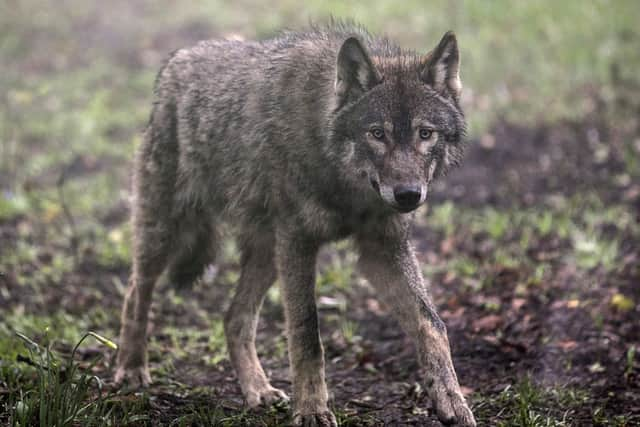Humans may lack the humility to allow wolves to roam free in the wild in Scotland once again – Nina Welsch
There’s an old joke about an army of Englishmen approaching the Scottish border. From the misty distance a voice goads that it will “take only one Scotsman to defeat a thousand Englishmen”. The general proceeds to send that number of soldiers across the border. Only one returns alive, crawling across the ground in agony: “It’s a trap,” he wheezes, “there’s two of them.”
The punchline, as well as ribbing the English, pokes fun at the mythologised idea of the Scotsman as more beast than man, an apex warrior more powerful than the lion and bear combined. For some reason, it came into my mind after I attended the premiere of a thought-provoking documentary titled Why Not Scotland? Produced by non-profit organisation Scotland: The Big Picture, the film looks at different countries around Europe – Poland, Norway and Italy – that have reintroduced species such as the lynx, wolf and bear to their countries’ ecosystems and how the advantages have ultimately outweighed the disruptions.
Advertisement
Hide AdAdvertisement
Hide AdRewilding is a popular proposition with the Scottish public. A study by the Scottish Rewilding Alliance, comprised of 20 different organisations, showed 76 per cent of Scots were in favour. A lot of this enthusiasm, though, revolves around replanting depleted species of trees and the reintroduction of smaller, unthreatening animals, such as beavers. Bigger, predatory mammals are a squeamish prospect, even for some rewilding campaigners. There is particular tension between conservationists and farmers, who have been framed unhelpfully as antagonists to one another, as eloquently explored by environmentalist farmer Patrick Laurie.


‘Authentic symbol of wildness'
I suspect though that an equally difficult barrier to overcome will be the aversion in the wider Scottish psyche. Thanks in part to fairytales, wolves have a deeply unfair reputation for being dangerous. In fact, attacks on humans are, if not non-existent, spectacularly rare – the same applies to lynxes, bears are a different story.
A deeper problem yet is touched on by Dr Hugh Webster. On the idea of reintroducing wolves to Scotland, the biggest advantage of which would be addressing our massive deer-overpopulation problem, he argues that they are perceived as not just a threat to farmer’s livestock but also represent something more discomfiting: “An authentic symbol of wildness... a reminder of the fact that humans do not (and perhaps should not) stand unchallenged in their dominion over the natural world.”
A shift in ego
While primality and wildness may be baked into the romanticised image of Scottishness – specifically Scottish masculinity – I’m not sure within this mythology is partnership with nature or reverence for it, more boastful dominance. Putting whimsical notions of Celtic brute strength aside, in modern Scotland we are as cosseted and insulated from the brutality of nature as any other part of the west.
Humans found themselves on top of the food chain by accident and in Scotland, we’ve had 300 years without wolves, bears or any other kind of apex predator. Even I, a passionate environmentalist, grapple with the idea of living amongst them. This is not because of irrational worries of being maimed or eaten while on a Highland walk but the shift in ego that relinquishing top-dog status requires. For wolves or lynx to be (re)accepted as part of our natural landscape and ecosystem, it would require that most endangered of human qualities: humility.
Nina Welsch is a freelance writer
Comments
Want to join the conversation? Please or to comment on this article.
